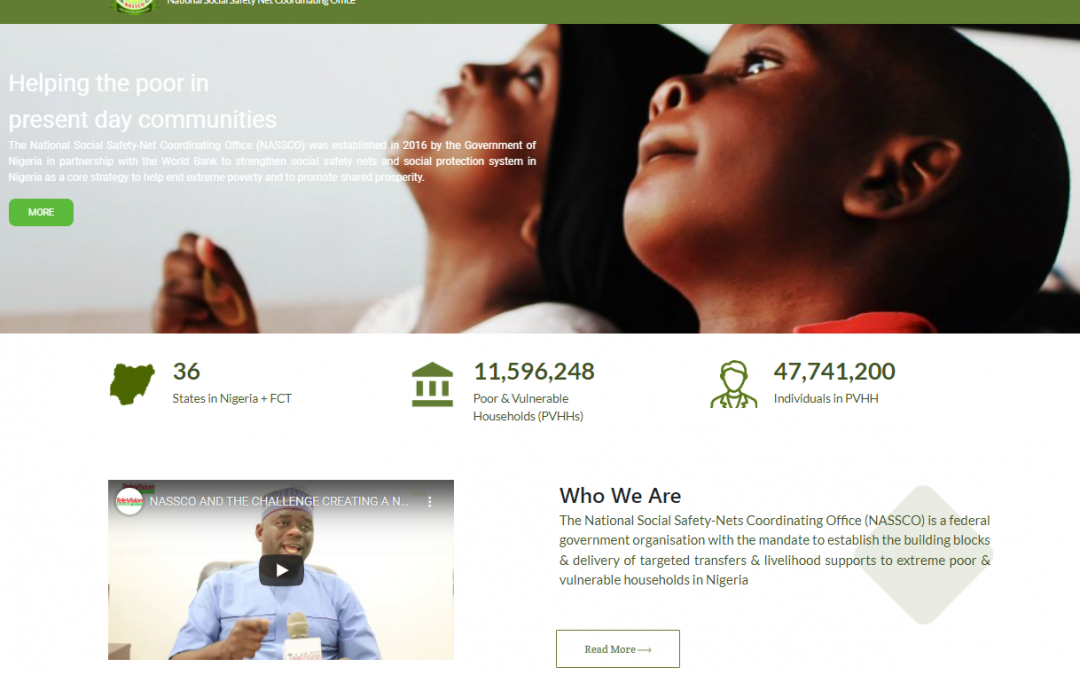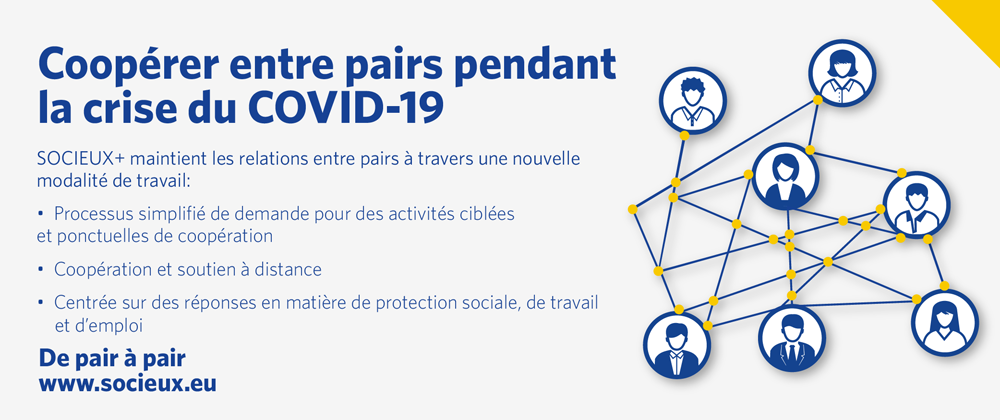The National Social Safety Net Coordination Office (NASSCO) of Nigeria.
Building inclusive social protection data systems: the Nigerian example of NASSCO
Linking social protection and inclusion of vulnerable groups to data systems is a key challenge of social security institutions worldwide. SOCIEUX+ provides support and peer-to-peer exchanges with partner institutions within technical cooperation actions that tackle the structural challenges of improving these systems.
The National Social Safety Net Coordination Office (NASSCO) of Nigeria, a SOCIEUX+ partner institution, has been at the forefront of social assistance programmes in Nigeria since its foundation in 2016. Formed within a social investment program targeting poor households and unemployed youth, NASSCO was mandated to build a country-wide, consolidated National Social Register (NSR) of poor and vulnerable households and ensure policy coherence in the social protection sector. In April 2020, NASSCO released the NSR of Poor & Vulnerable Households (PVHHs) by state, to contribute to the Nigerian government’s COVID-19 response measures by identifying vulnerable people which may benefit from cash transfers and other palliative measures. To date, NASSCO has identified over 13 million individuals in over 3 million PVHH across Nigeria’s 36 states.
SOCIEUX+ responded to need of NASSCO of enhancing the technical capacities of the staff to develop innovative and policy-relevant statistics and analyses to improve utilization of the NSR database. The first activity consisted of a pre-training assessment, which surveyed over 130 NASSCO employees throughout the country. This activity was followed by two capacity building on data management, using the program “R” and linking data to policy/strategy advice. Another activity focused on building M&E tools to track staff performance. A final activity provided guidance on data security and sensitivity, and data protection policies for strengthening NASSCO’s monitoring and information system (MIS).
Several thematic- and context-specific challenges were identified in the course of the action, including the difficulty in sharing information due to data sensitivity and ethical considerations in using/storing people’s data, as well as skill gaps in the use and endowment of digital tools. On the one hand, the fully remote modality of the action has increased accessibility, allowing NASSCO staff to participate in both synchronous and asynchronous activities. On the other hand, it required adapting the highly technical content and methodology of the activities to this modality
Experts from the Ministry of Education (France), the Mannheim Institute of Public Health at Heidelberg University (Germany), the Ministry of Labour and Social Policy (Bulgaria), the Auxiliary Fund for Payment of Unemployment Benefits (Belgium), and the Provident and Pension Fund for the staff of the French National Railway Company (France) facilitated this action.
This technical assistance fell within the scope of a parallel project entitled Strengthening and Expanding the National Social Registry (NSR) as a shock-responsive social protection system in Nigeria, funded by the European Commission’s Directorate-General for International Partnerships (DG-INTPA) and implemented by the International Labour Organization (ILO) in partnership with NASSCO.
This technical cooperation supported activities to increase access to social assistance for extremely poor and vulnerable individuals in Nigeria, especially those heavily affected by the COVID-19 crisis. The EU Delegation to Abuja, the ILO and SOCIEUX+ cooperated closely to ensure complementarity between the existing interventions. In particular, SOCIEUX+ complemented the capacity building component of the DG INTPA-ILO project by strengthening the individual capacities and tools of technical staff.
Giuliana De Rosa
SOCIEUX+ Action Manager
(SOCIEUX 2020-20 & 2020-22 Nigeria)
On social media
Conclusion of the #SOCIEUX+ online workshops with @NasscoNigeria:
✓ Data policies and good practices.
✓ Data sensitivity and security.#Peer2peer #cooperation with the support of @ILOAbuja and @EUinNigeriaExpertise from #CPRPSNCF and @education_gouv pic.twitter.com/zCEnlOQPAb
— SOCIEUX+ (@SOCIEUXplus) March 10, 2022








